Part 8
While his brethren fought and died in Hibernia, Heruben spent his days with his military cabinet, planning the future of warfare. Even when mayors and ministers petitioned him with policy and law, he secretly dreamed of gore and glory. As his relatives married and built lives in Britannia, he had poured over battle records, histories and theories. He had known classical Hellenic tactics failed miserably against the natives, but it hadn't been until the conquest of Calleva that he had had the time to learn from his enemies.
Now, in the highlands, he sat at the rear of the new army he had crafted. Three quarters of his phalanx units had traded in their spears and segmented armor for swords, shields and chain mail. Heruben personally had retrained them during the two years it took for Acestes to conquer Hibernia, and had sculpted them into highly flexible and mobile heavy infantry. They learned to fight not as a wall but as a unit, emphasizing teamwork and coordination. Heruben called them the Legeonarioi.
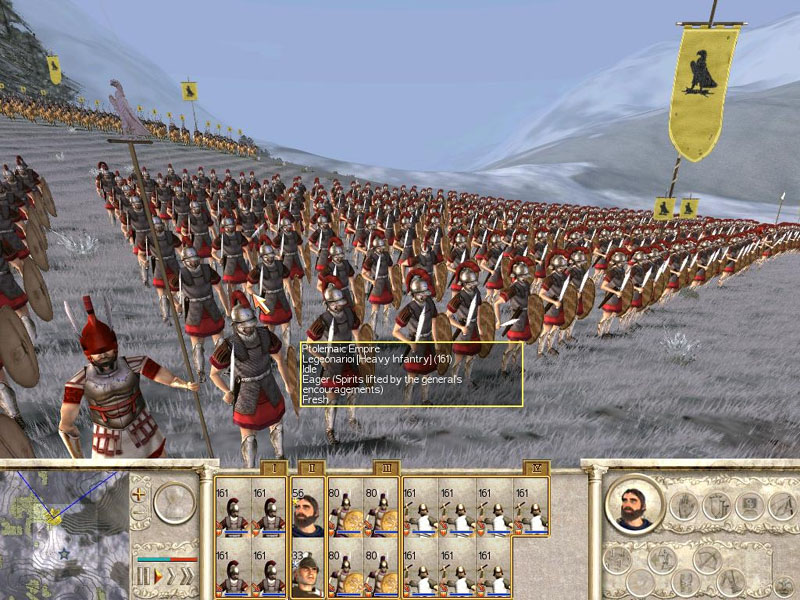
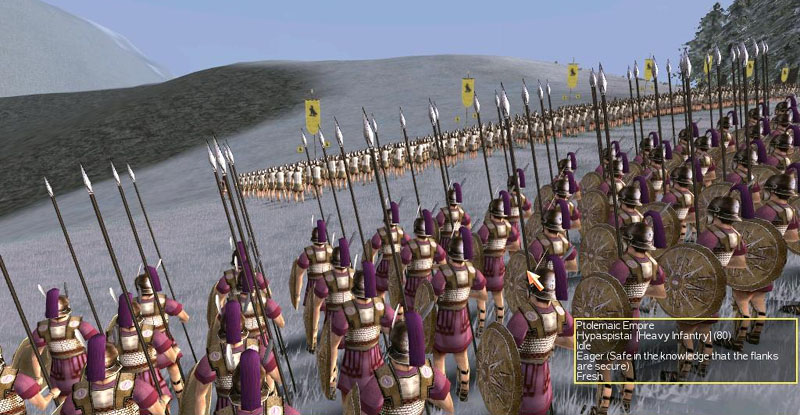
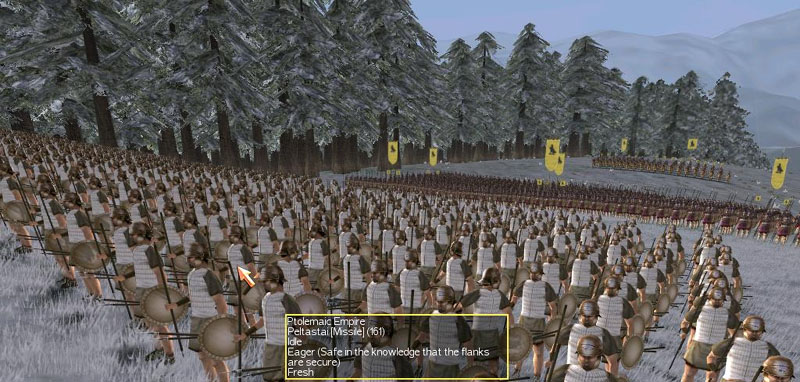
At the top, Vortigern waited patiently at the back of his army as it gazed down the slope at their attackers. All around him were men clad in cloth and chain, but his armor was greek, taken from the slain Euergetes Ptolemy.
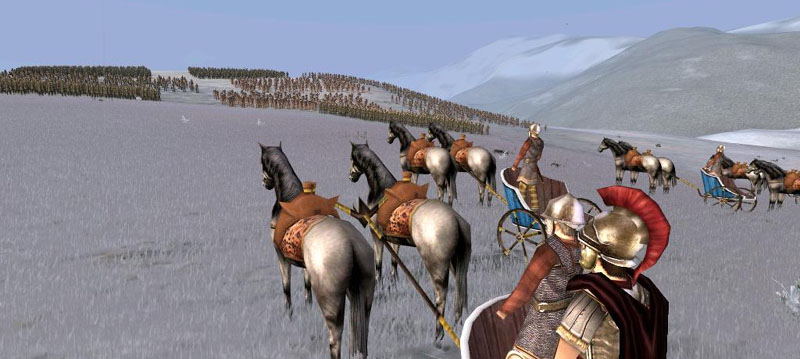
The pharaoh gave no response, his icy and determined stare remained fixed on the rebel battle flags that were peeking over the top of the ridge. He slowly drew his sword, and raised it. "Forward! Ahead one hundred paces!" The command echoed against the icy hills as the first British Legion began their ascent.
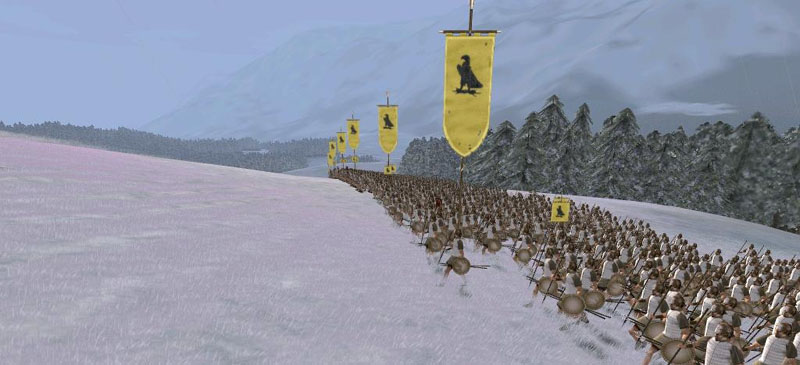
"Vortigern!" He shouted in his most formal greek, "It doesn't have to end this way! Britain is mine, but the flame of the Britons will never be extinguished! Join me, Vortigern, and together we shall bring that fire to the far sides of the world!"
Slowly the highlander ranks parted, and Heruben gasped as he beheld Vortigern in Greek general's armor, riding a chariot that had been carved from the skull of an elephant. The highlander grimaced horribly, and then hurled insults and curses at the Ptolemaics with a voice that carried like thunder.

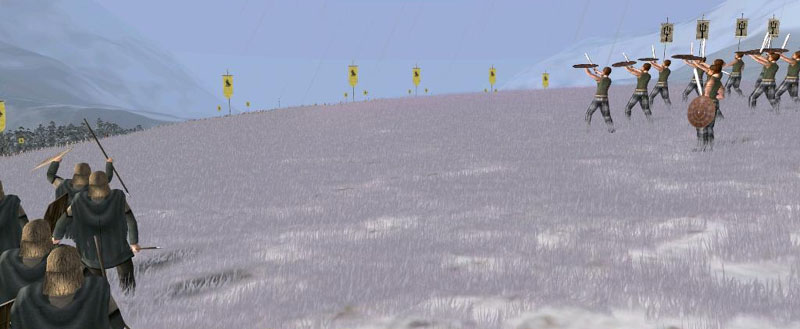
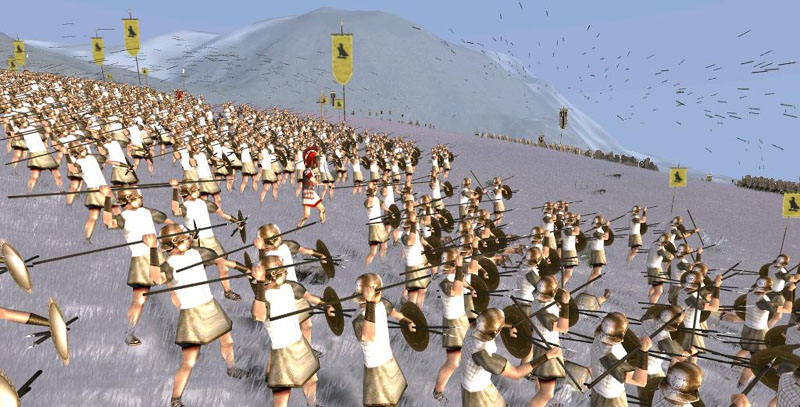
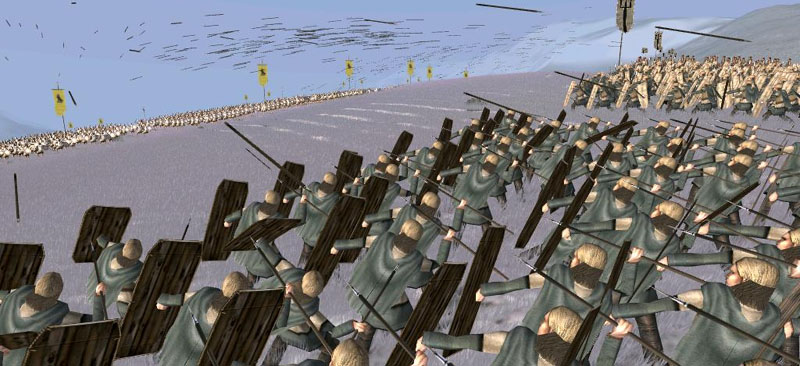
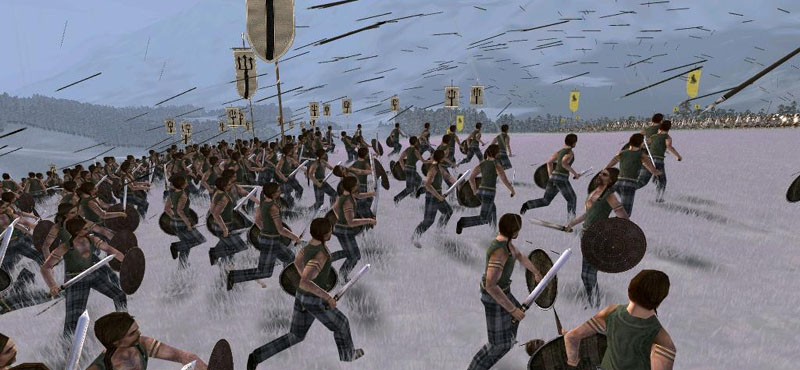
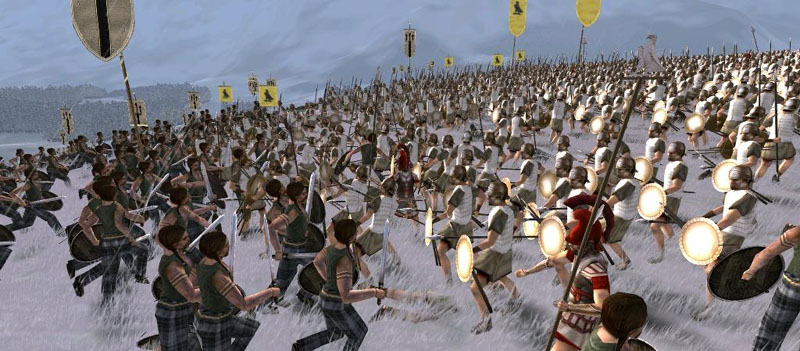
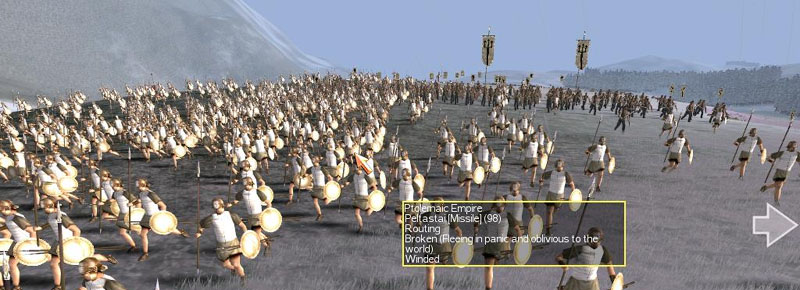
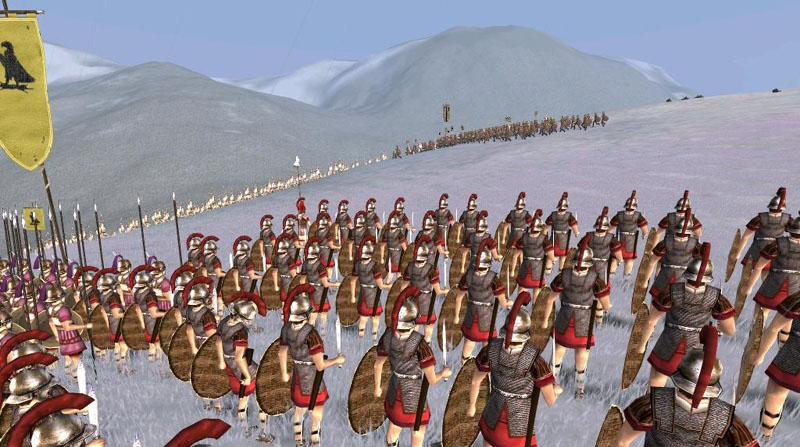
Heruben watched as the skirmishing wave continued to flee in terror down the ridge. They had suffered huge casualties, but they had given the rest of the army enough time to climb the ridge uncontested. Now, his legionaries stood relatively level with the enemy. "All units! Charge!" They broke into a run, sheathing their swords between steps, and brought out the collapsed piluses hooked to their belts.
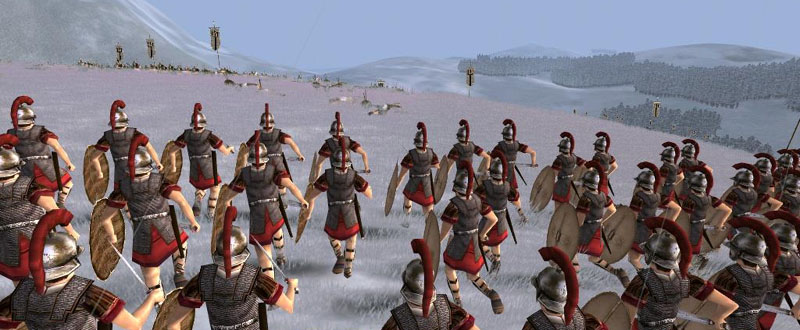
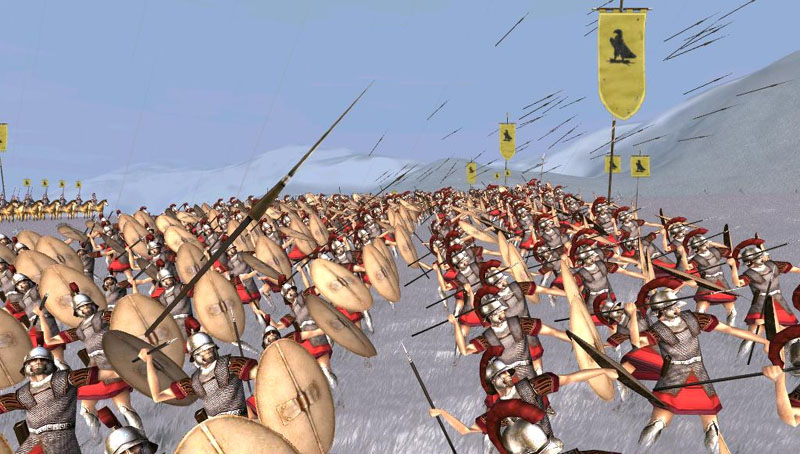
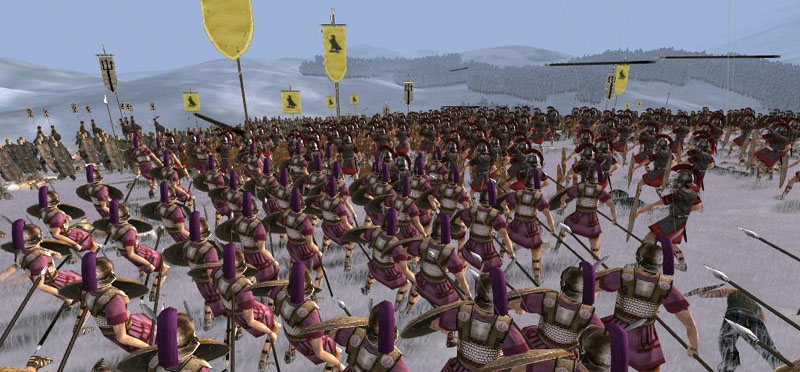
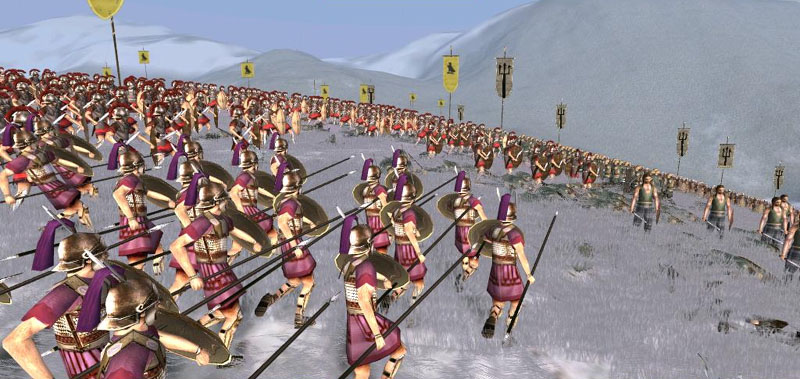
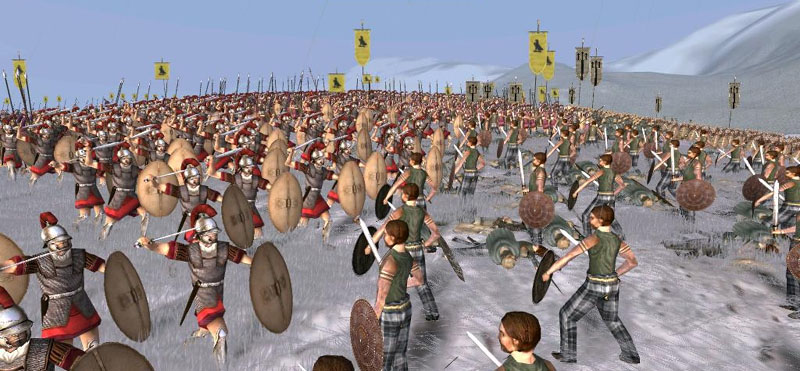
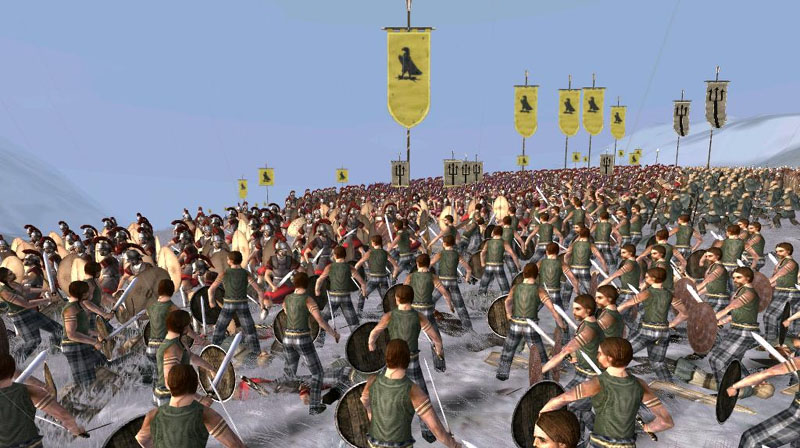
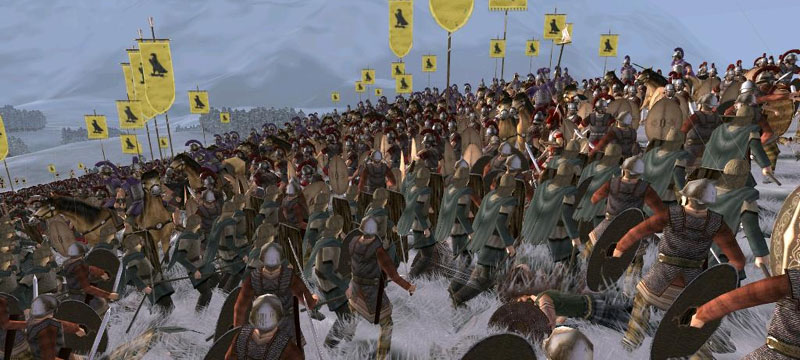

Which is why Heruben almost missed the cry of one of his Hetairoi: "It's him!" and he saw Vortigern, his chariot racing up and down the main battle line, snapping limbs and splintering spines as the highlander general aboard struck all about him with his sword.
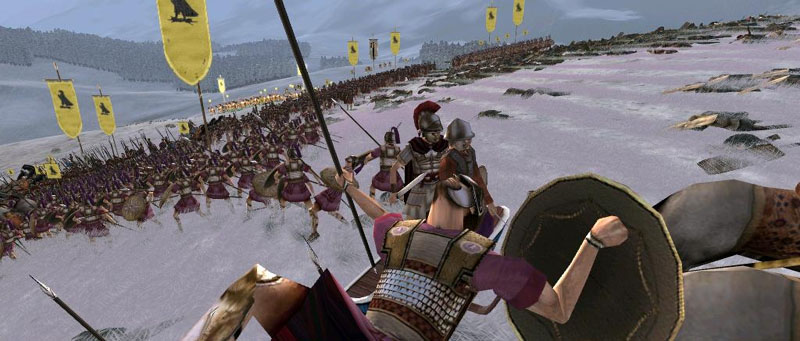
Time seemed to slow to a crawl for the pharaoh. Heruben's horse leapt over the chariot, clearing the vehicle entirely. Both men roared as swords swung and steel flashed in the low winter sun.
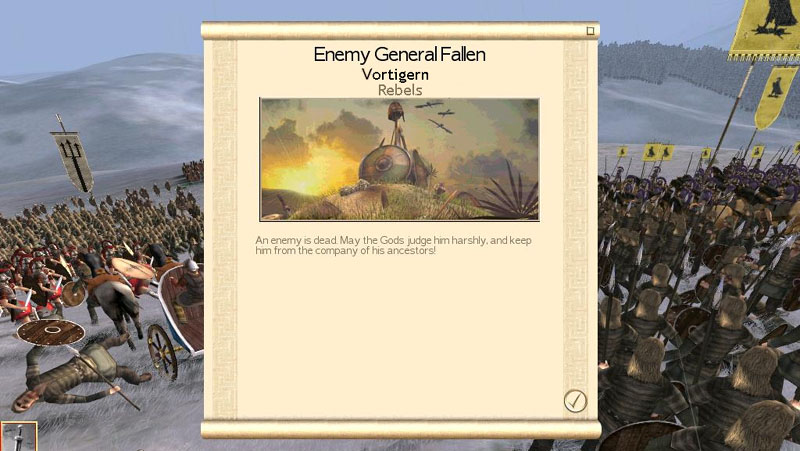
Then Heruben looked up, meeting their gaze with a fierceome glower. The highlanders broke rank and fled. No mere mortal could fight Vortigern and still live. Truly the pharaoh must be a god.
As the broken and fleeing highlanders ran into the wilderness, Heruben remained where he stood. Acestes rode up to him and dismounted, surprised by how still his brother remained, despite witnessing the largest mass rout ever. Heruben appeared to have regained his composure, and Acestes was overjoyed. "Oh mighty pharaoh! You've done it. Truly none remain to question your awesome power!"
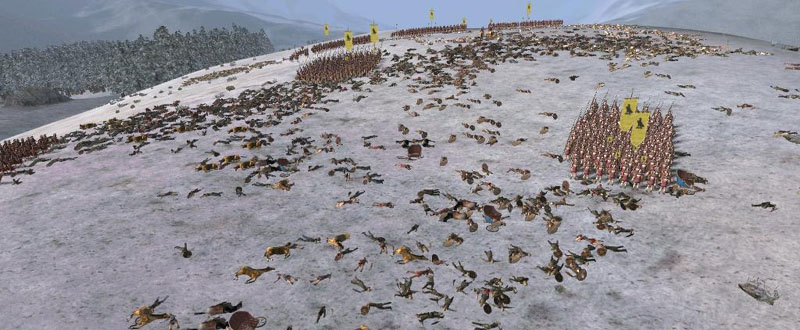
He had been holding his guts in with his shield.
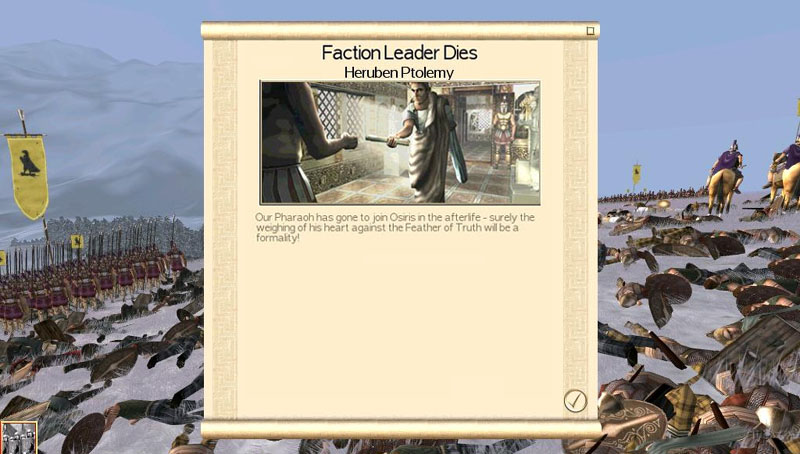
Heruben Ptolemy never did return to Alexandria. That work he had left for his heirs, and that they left theirs. Change continued to sweep the world as the empires of antiquity winked out one by one. Like the Ptolemies before them, the Seleucids too were swept by the changing world around them.
Word would eventually reach the Ptolemies in Britain of the collapse of the Seleucid Empire at the hands of a mighty warlord from the east, Bryzos the Conquerer, who conquered and butchered from the eastern jungles of India all the way to Byzantium and Macedonia. It was said that Bryzos was imbued with the might of a god, but the Ptolemies whether Anubis had found an agent through which to exact his revenge on the Seleucids for the sacking of Egypt.
Though the Pharaoh was dead, his bloodline had become an inseparable part of Britannia, it's roots sinking more deeply into the land than the largest of trees. They flourished, inexorable, in Britain as a union of tribes. Time passed and the name Ptolemy was eventually forgotten completely, yet the descendants of Heruben Ptolemy, Pharaoh of Britain, continued to carry his blood, if not his name.
Before leaving the sands of Egypt, Heruben Ptolemy had uttered the words We will return. Fourteen centuries later, his oath was finally fulfilled when his descendants, unbeknownst to them, once more occupied the complete ancestral lands of the Egyptian Empire. And they finalized their return, their fulfillment of the Pharaoh's oath, with the following words:
A gah-lah bala to you too, laddie. Jerusalem is Scotland's!
The End.